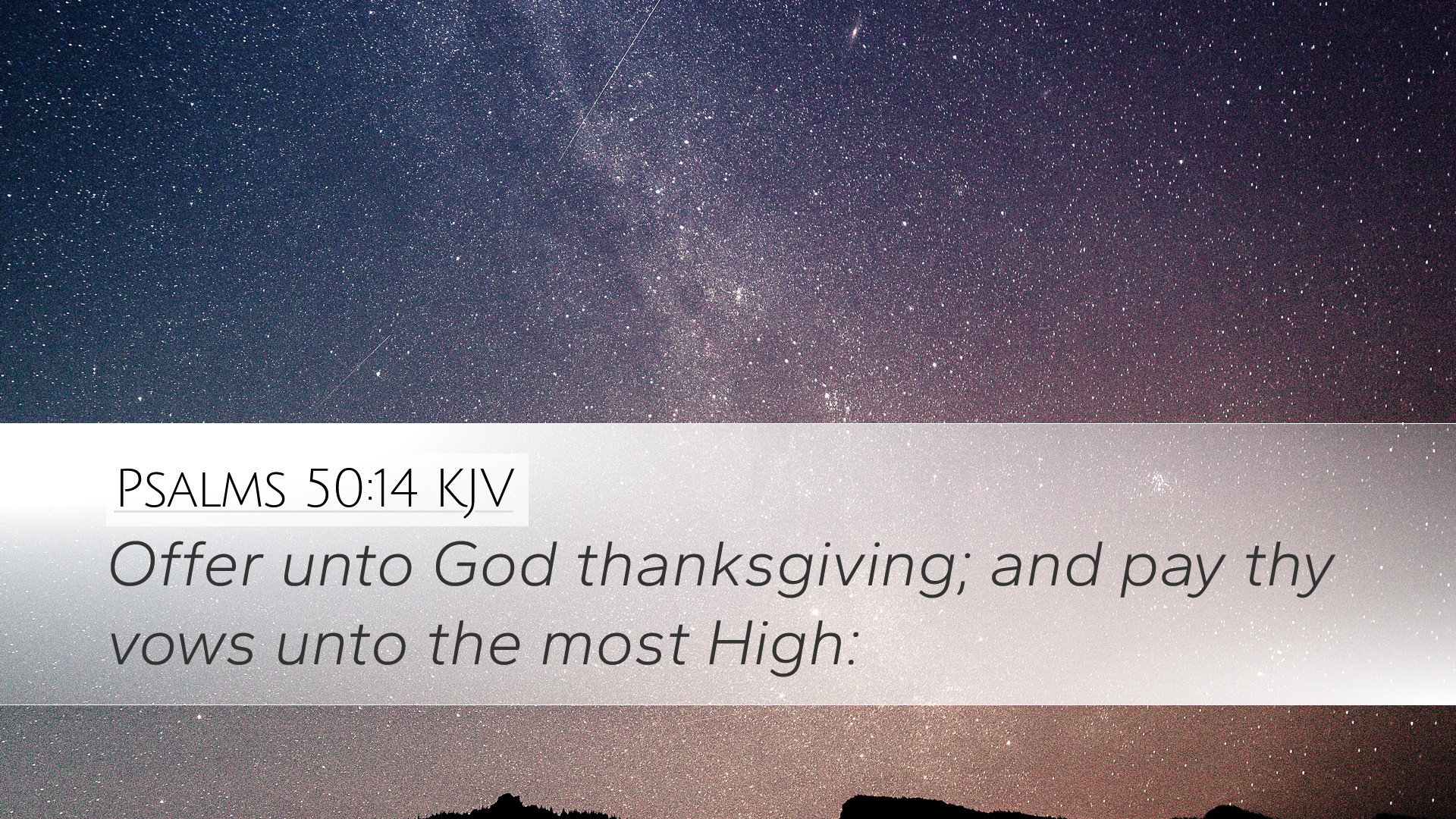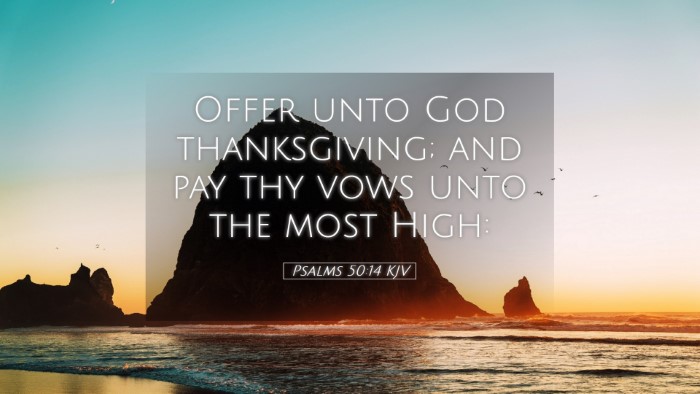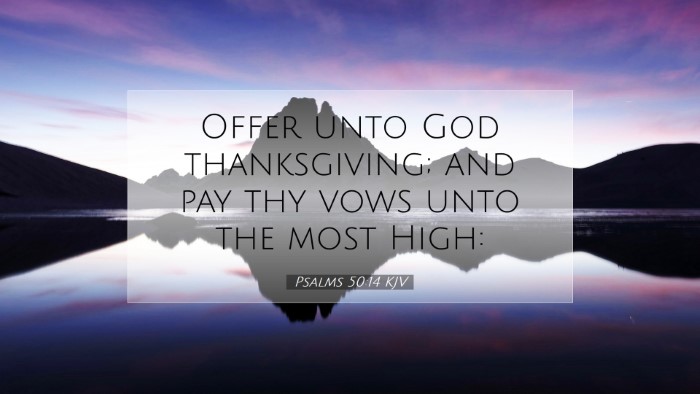Psalms 50:14 - Commentary and Insights
Psalms 50:14 states, "Offer unto God thanksgiving; and pay thy vows unto the most High."
This verse is part of a larger context where God is addressing Israel regarding their worship practices and the nature of true religion. The emphasis on thanksgiving and vows is an invitation to reflect on the nature of our commitments to God and the expression of our gratitude.
Contextual Overview
The 50th Psalm is categorized among the Psalms of Asaph, a group of Psalms attributed to Asaph or his descendants. This particular Psalm opens with a divine summons: God calling upon the heavens and the earth to witness His case against His people. It is a powerful declaration of God’s sovereignty and His desire for genuine worship rather than mere ritualistic sacrifices.
The Call to Thanksgiving
1. The Nature of Thanksgiving
-
Matthew Henry emphasizes that thanksgiving is a vital part of worship, expressing our acknowledgement of God's goodness and provision. This verse underlines the importance of gratitude as an offering acceptable to God.
-
Albert Barnes notes that thanksgiving should not be a mere formality but a sincere expression of the heart. It is a recognition of God's continual blessings in the life of the believer.
-
Adam Clarke elaborates that offers of thanks transform a routine activity of sacrifices into a meaningful act of worship, highlighting that the spirit of thankfulness should pervade all our dealings with God.
Paying Vows to the Most High
2. The Significance of Vows
-
Henry explains that vows represent commitments made in sincere devotion. Paying our vows signifies fidelity and loyalty to God’s commandments and the covenant relationship established with Him.
-
Barnes emphasizes that fulfilling one’s vows is not merely about adherence to a promise but about deepening one’s relationship with God. It reflects the integrity of the believer and the importance of keeping one’s word.
-
Clarke adds that paying vows extends beyond formal obligations; it is an integral part of living a life acceptable unto God, as it involves obedience and action from a place of sincere faith.
The Theological Implications
3. Understanding God’s Requirements
-
This verse serves as a reminder that the essence of worship is rooted in the heart’s commitment rather than in external practices alone. In a time where religious duties can become mechanical, God calls His people back to a heartfelt expression of faith.
-
The mentioning of “the Most High” emphasizes God’s supreme authority. In recognizing this, believers are invited to offer thanksgiving and fulfill their vows knowing they serve a God who is fully sovereign and worthy of reverence.
Practical Application for Believers
4. Cultivating a Grateful Heart
-
Reflecting on the provisions and blessings received from God leads to a profound sense of gratitude, fostering a lifestyle marked by thanksgiving. Believers are encouraged to actively express thanks in both personal prayer and public worship.
-
Vows made to God should be considered seriously. Congregants are urged to examine their commitments and ensure they fulfill them, as this reflects a life in alignment with God’s purposes and intentions.
-
Engaging in both thanksgiving and the fulfillment of vows can serve as encouragement for others in the faith community. Together, these practices create a culture of accountability and support within the church.
Conclusion
Psalms 50:14 encapsulates the heart of true worship: a genuine expression of gratitude toward God and unwavering commitment to our vows. As pastors, students, theologians, and scholars reflect on this verse, let it inspire a renewed dedication to authentic worship that goes beyond mere ritual, emphasizing the significance of a heartfelt relationship with the Almighty.


